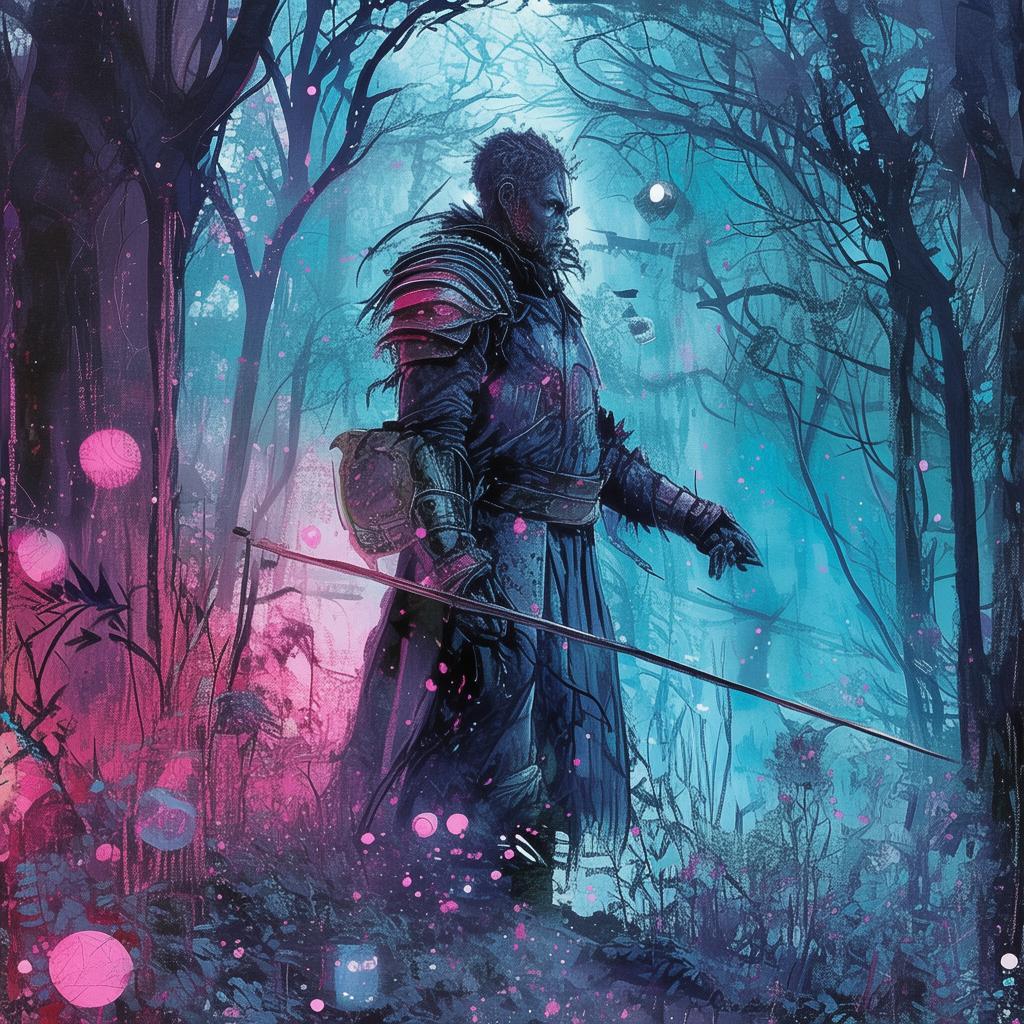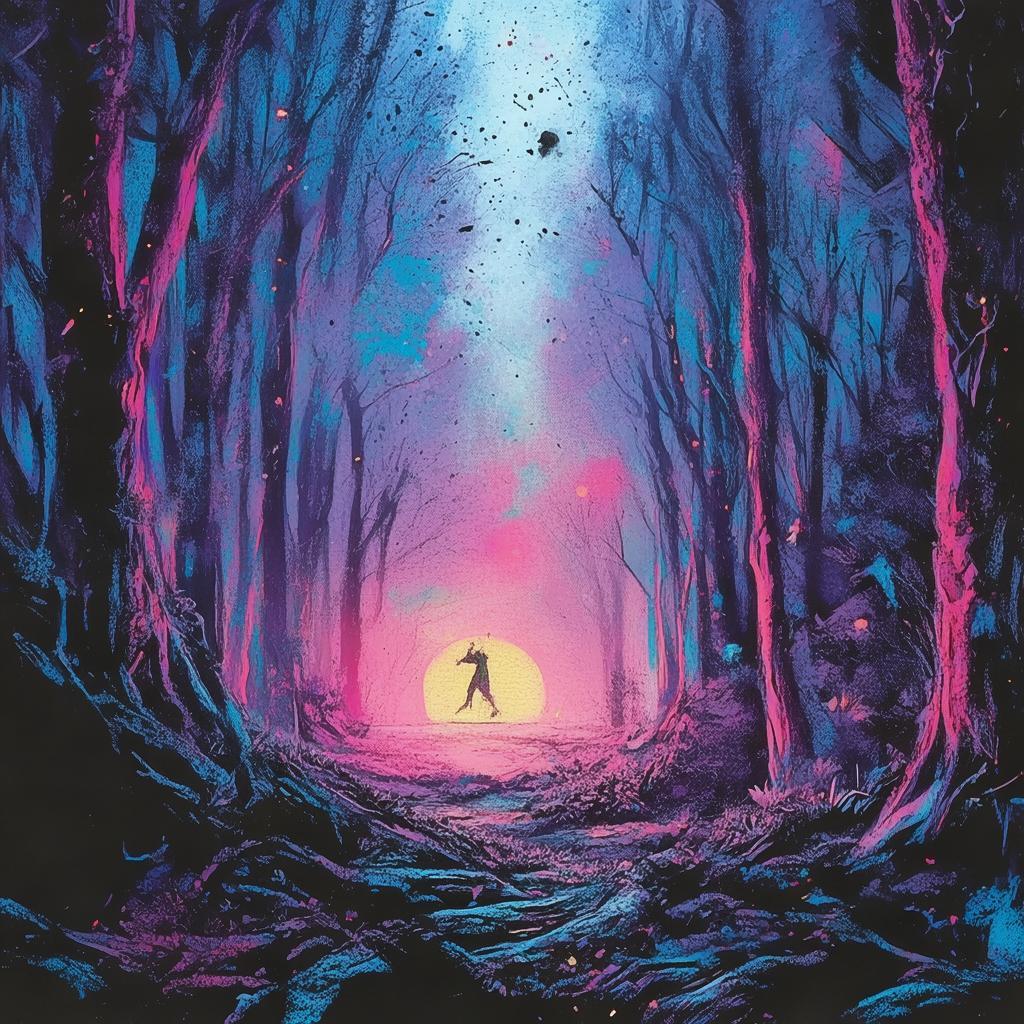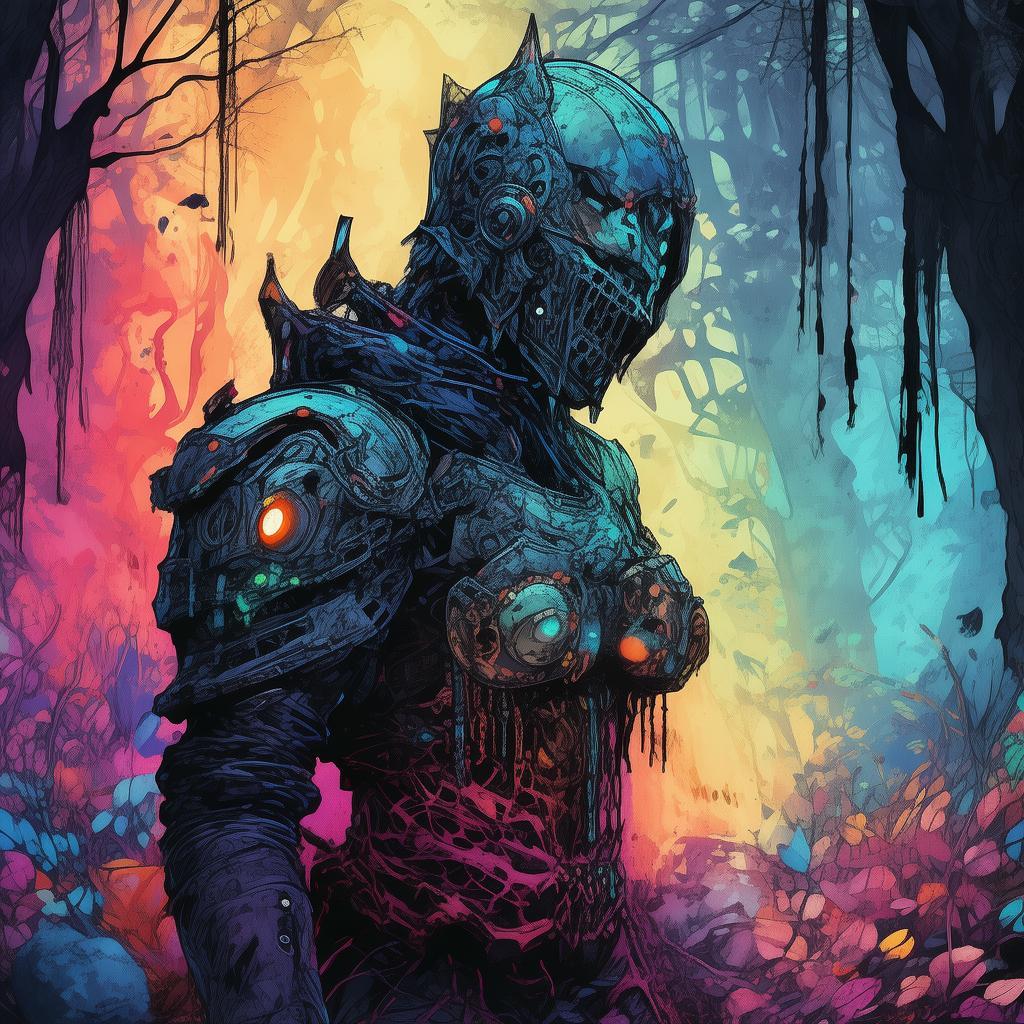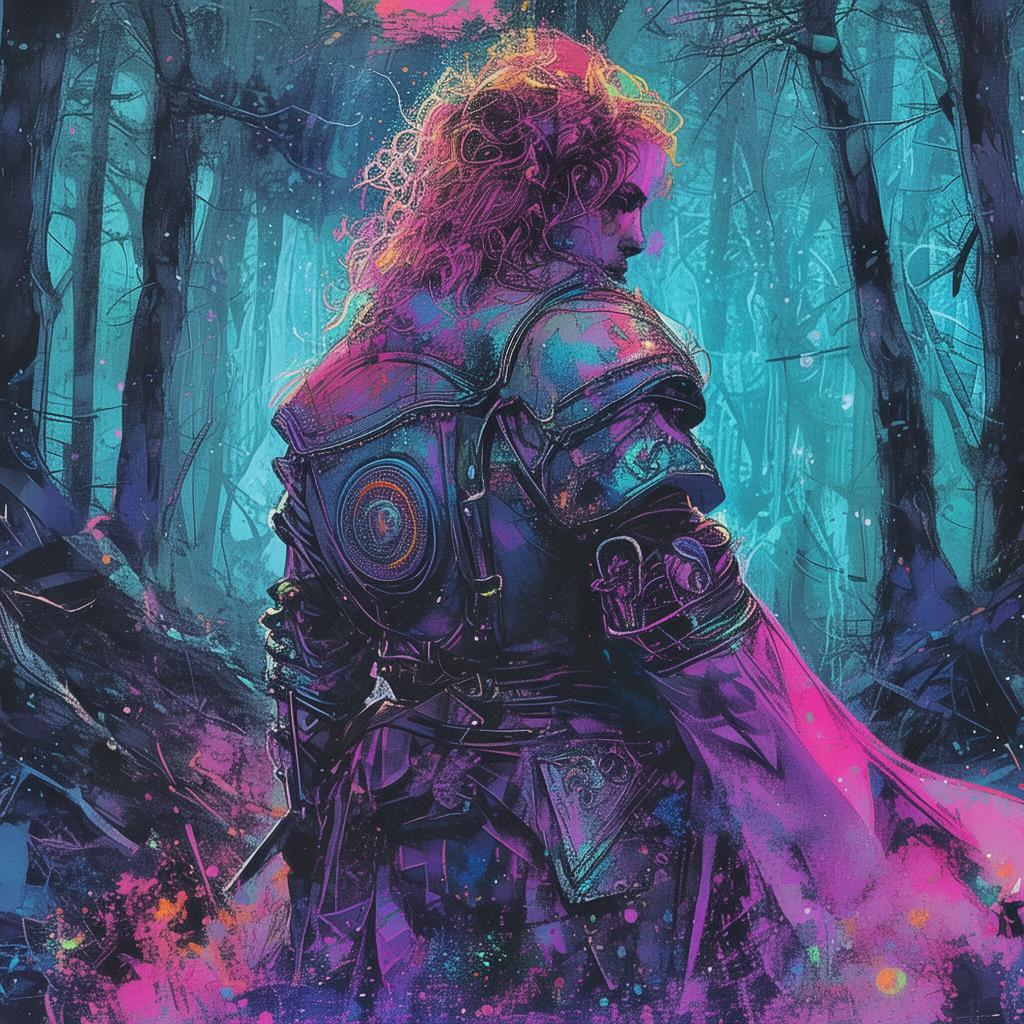The Echoes of the Mechanized Eden
In the heart of the Dystopian Garden, where the sky was a canvas of steel and concrete, and the soil was a memory of a once-thriving ecosystem, there lived a young Mech Gardener named Aria. Her days were spent tending to the mechanical flora that had taken the place of the natural world, their metallic leaves rustling in a silent symphony. The garden was a marvel of human ingenuity, a testament to the resilience of humanity in a world where resources were scarce and nature had been subdued.
Aria's life was simple yet monotonous. She worked the gardens, took care of the mechanical creatures that patrolled the perimeter, and lived in a small, windowless room above the garden's central control hub. She had no friends, no family, and no knowledge of the world beyond the garden walls. Her existence was one of quiet servitude, a life she had come to accept as her fate.
One evening, as the sun dipped below the horizon, casting a cold, artificial glow over the garden, Aria found herself drawn to the oldest section of the garden, a place where the mechanical plants were more ornate, their designs more intricate. It was there, amidst the towering metal trees, that she discovered a hidden compartment in one of the older statues. Inside, she found a small, worn journal.
Curiosity piqued, Aria began to read. The journal belonged to a gardener from a time before the Dystopian Garden was built, a time when the world was still lush and full of life. The entries were filled with tales of a world that had once been vibrant and alive, and of a garden that had been a sanctuary for both humans and nature.
As she read, Aria felt a strange connection to the words on the page. She imagined the garden as it must have been, a place of beauty and wonder, a place where humans and nature coexisted in harmony. The journal spoke of a secret, a hidden truth that could change everything. It spoke of a garden that had been a sanctuary for a group of rebels, a place where they had hidden from the oppressive regime that had taken control of the world.
Aria knew that she had to find out more. She began to investigate, uncovering clues within the garden itself. She discovered hidden pathways, old machinery, and even remnants of the natural world that had been preserved within the garden's walls. As she delved deeper, she realized that the garden was more than just a testament to human ingenuity—it was a relic of a time when hope had not yet been lost.
One day, as she was examining a particularly ornate flower bed, Aria heard a whisper. It was faint, almost inaudible, but it was there, a voice calling out to her. She followed the sound, and it led her to a hidden chamber beneath the garden. Inside, she found a group of people, rebels like those described in the journal, living in secret and fighting for a world that had been lost to them.
The leader of the rebels, an old gardener named Elara, welcomed Aria with open arms. She explained that the garden was more than just a place of beauty—it was a symbol of hope, a reminder that nature and humanity could coexist. Elara revealed that the journal had been a guide, a map to the hidden truths that could bring down the oppressive regime and restore the world to its former glory.
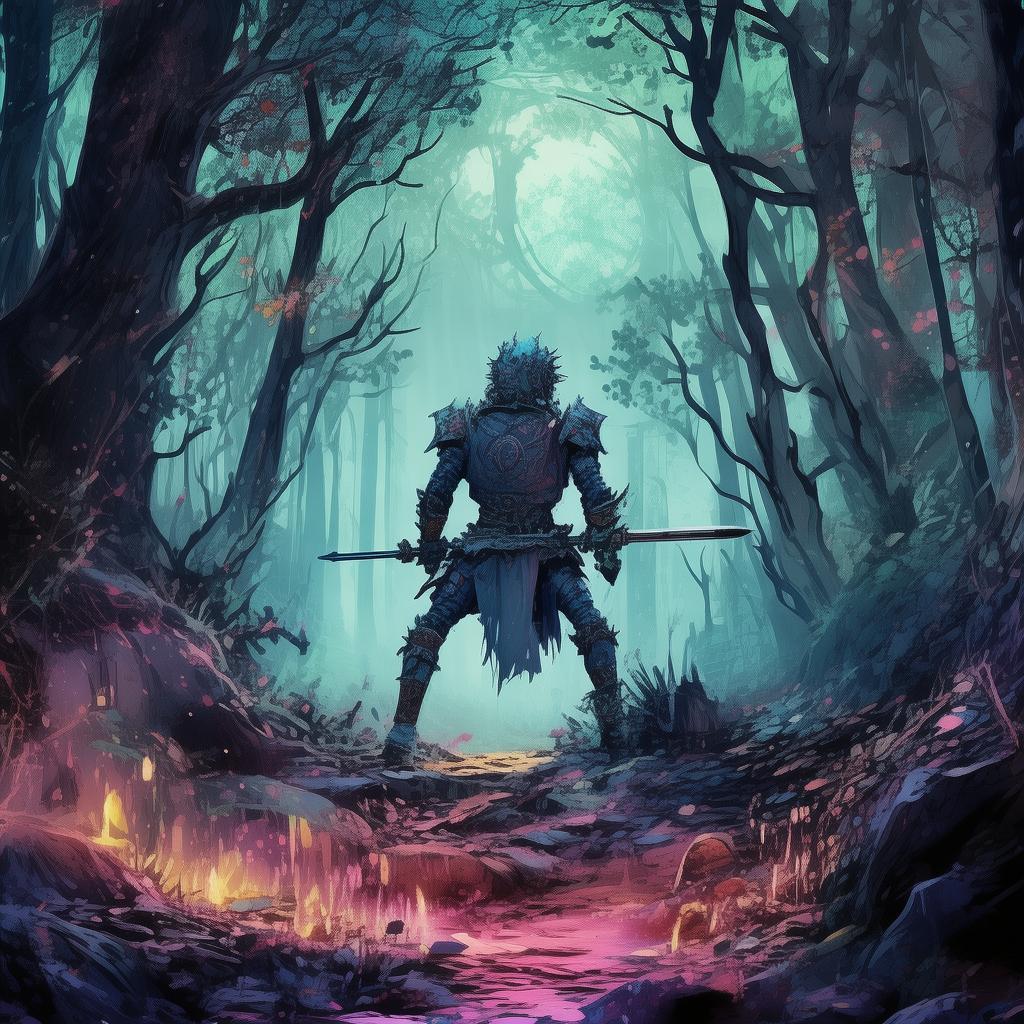
Aria knew that she had to help. She joined the rebels, using her knowledge of the garden's inner workings to aid in their cause. Together, they began to plan their rebellion, using the garden as a base of operations and the journal as a guide. As they worked, Aria discovered more about herself and her connection to the garden. She realized that she was part of a long-forgotten legacy, a legacy of hope and resilience.
The day of the rebellion arrived, and Aria stood with the rebels, her heart pounding with a mix of fear and excitement. They moved through the garden, their actions calculated and precise. As they reached the central control hub, they were met with a fierce resistance. The regime's forces were well-armed and prepared, but the rebels were determined.
In the heat of battle, Aria's knowledge of the garden's systems paid off. She managed to hack into the central control, shutting down the mechanical flora and creatures that had been their biggest threat. The regime's forces were thrown into disarray, and the rebels capitalized on the confusion.
The rebellion was successful, and the regime was overthrown. The Dystopian Garden was no longer a place of oppression, but a symbol of hope and a reminder of the beauty that could be found in the world. Aria and the rebels worked to restore the garden to its former glory, planting real seeds and nurturing them back to life.
As the garden began to flourish once more, Aria stood in the center, her heart full of gratitude and wonder. She had discovered a hidden truth, a truth that had changed her life and the world around her. She realized that she was not just a Mech Gardener; she was a guardian of the garden, a protector of the world's beauty.
And so, the Dystopian Garden became a place of peace and harmony once more, a sanctuary for both humans and nature. Aria's journey had come full circle, and she had become the very heart of the garden she had once tended to. The Echoes of the Mechanized Eden had been heard, and a new chapter in the world's history had begun.
✨ Original Statement ✨
All articles published on this website (including but not limited to text, images, videos, and other content) are original or authorized for reposting and are protected by relevant laws. Without the explicit written permission of this website, no individual or organization may copy, modify, repost, or use the content for commercial purposes.
If you need to quote or cooperate, please contact this site for authorization. We reserve the right to pursue legal responsibility for any unauthorized use.
Hereby declared.
